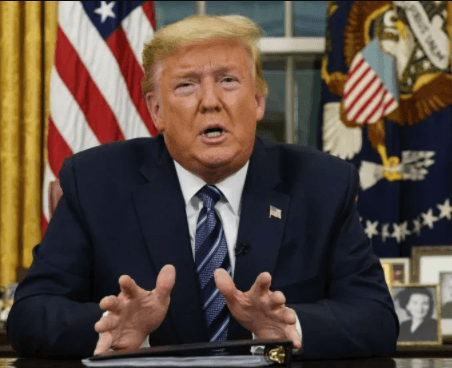The U.S. has suspended its extradition treaty with Hong Kong and ended reciprocal tax treatment on shipping with the former British colony, the latest salvo in escalating tensions between Washington and Beijing.
The moves are part of the Trump administration’s efforts to pressure China over the imposition of a national security law that has led to charges against more than 20 pro-democracy activists. They follow up on an executive order to end preferential trading treatment for the city, which President Donald Trump and his team say was now essentially just another Chinese city.
China urged the U.S. on Thursday to cease its “wrong moves” toward Hong Kong, with Foreign Ministry spokesman Zhao Lijian reaffirming Beijing’s position that the city’s affairs were a domestic matter. Hong Kong’s government said it “strongly objects” and “deplores” the Trump administration’s decision, repeating its vow to take up the complaints at the World Trade Organization.
Hong Kong equities closed down 1.5%, the biggest loss in almost two weeks. The city’s stocks benchmark pared an earlier loss of as much as 2.2% after China said it planned to hold a call with the U.S. on trade.
The end of reciprocal tax treatment on shipping was most likely to affect companies such as Orient Overseas (International) Ltd., which could be subject to tax on income hauling cargo to the U.S. The company’s shares were unchanged in Hong Kong trading after falling as much 0.9%.
“The financial impact from this for shipping companies may not be big, but it has more of a symbolic impact,” said Jason Chiang, a Singapore-based director at Ocean Shipping Consultants. “This is ultimately targeting China.”
The U.S. decision on fugitives follows a half-dozen other countries — including Australia, Germany and the U.K. — that have suspended extradition agreements with Hong Kong following China’s imposition of the law in late June. The Trump administration has also sanctioned 11 senior officials who oversee Hong Kong including the city’s leader, Carrie Lam, who has said she has had difficulties with credit cards.
China has responded with retaliatory measures against U.S. senators and human rights activists, although Beijing has so far avoided senior White House officials.
More broadly, the Trump administration has engaged in an expanding clash with Beijing over everything from apps such as TikTok and 5G wireless technology to a blame game over Covid-19 and arms sales to Taiwan. Tensions and rhetoric have escalated recently as the global pandemic worsened in the U.S., China ramped up pressure on Hong Kong and as the U.S. election draws closer.
The agreements terminated Wednesday “covered the surrender of fugitive offenders, the transfer of sentenced persons, and reciprocal tax exemptions on income derived from the international operation of ships,” State Department spokeswoman Morgan Ortagus said.
“These steps underscore our deep concern regarding Beijing’s decision to impose the National Security Law, which has crushed the freedoms of the people of Hong Kong,” Ortagus said.
